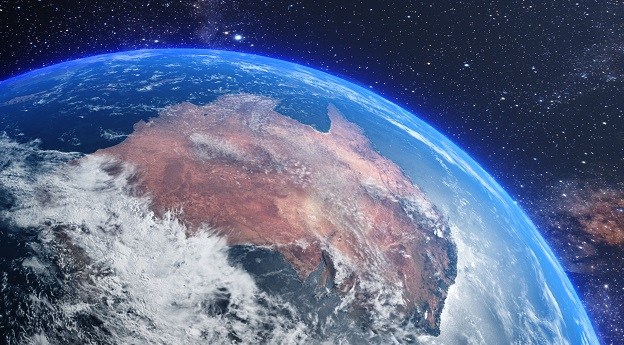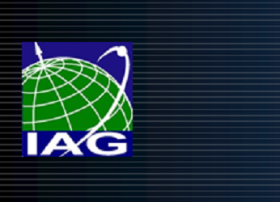
The third International Association of Geodesy (IAG) Commission 4 Symposium will bring together scientists, researchers and professionals working in the broad field of positioning and its applications.
The symposium will serve as a platform for discussing research that leverages current and emerging positioning techniques and technologies. It aims to provide both practical and theoretical solutions across a wide range of topics.
Discussions will address both technical and institutional aspects of developing GNSS backup systems, integrated positioning solutions, resilient PNT systems, and emerging LEO-based PNT techniques. The symposium will also explore space weather monitoring and forecasting through both ground-based and space-based geodetic observations. Additionally, the application of machine learning and artificial intelligence in geodesy will be examined.
The main topics to be covered include:
- Multi-frequency and multi-constellation GNSS technique
- Terrestrial and satellite-based positioning system development
- Multi-sensor fusion navigation and integrity monitoring
- Emerging positioning technologies, e.g., resilient PNT and LEO-based PNT
- Atmospheric space weather monitoring using geodetic observation techniques
- Applications of geodesy to engineering
- Artificial Intelligence technique for geodesy research
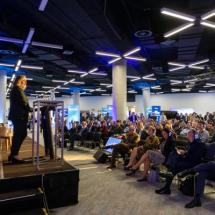
The Australian Space Summit & Exhibition is returning for its fourth consecutive year to throw a spotlight on the increasing strength of the nation’s space sector.
Coming at a critical time for the Australia’s space community, the summit will unite the sector’s most influential decision makers from across the public and private spheres over two days of presentations, discussions and displays.
The diverse agenda will feature more than 70 frontline presentations from leaders in the space and defence sectors, while presenting established and emerging industry players the opportunity for networking and discovery.

The Open Geospatial Consortium’s (OGC) 132nd Member Meeting will be held from June 9 to 12, 2025, at the Holiday Inn Mérida in Mérida, Yucatán, Mexico.
The event will feature several tracks on a variety of topics, especially innovation in geospatial interoperability.
The program will highlight how remote sensing technologies such as synthetic aperture radar, LiDAR and hyperspectral sensing are contributing to societal, economic, security, and disaster response scenarios.
The program will also explore how digital transformation is improving land administration and building information management.
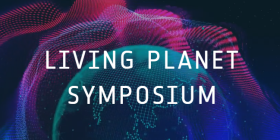
Held every three years, the European Space Agency (ESA) Living Planet Symposium brings together diverse communities with a common interest in using Earth observation data, in a forum to meet and network with space professionals from a wide range of sectors.
Living Planet Symposium 2025 will have an emphasis on transitioning from ‘Observation to climate action and sustainability for Earth’.
The event will provide a forum to discuss the latest findings and applications based on satellite data, and to review the contribution that data and technologies have made and could further make in addressing environmental and societal challenges.
The symposium will also provide a chance for showcasing innovative products, services, missions and initiatives, with the overarching goal of demonstrating how science, society, policy-making, businesses and the economy can all benefit from observations made from space.
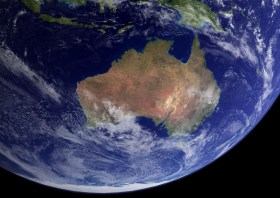
The 18th Australian Space Forum will bring together the best and brightest from Australia’s space industry and around the world. The event will feature keynote addresses from local and international space industry leaders and informative panel discussions on current space topics and industry trends.
Supported by the Australian Space Agency and the South Australian Space Industry Centre, the Forum will provide the ideal opportunity to stimulate ideas, share information about emerging technologies and network with influential space sector leaders and the broader community.
Participants can attend in person, or purchase session recordings if they are unable to physically attend.
Image courtesy NASA/R. Simmon/R. Stöckli
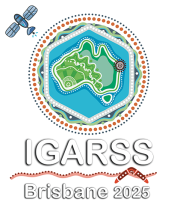
The International Geoscience and Remote Sensing Symposium (IGARSS) is the flagship conference of the IEEE Geoscience and Remote Sensing Society. The 45th IGARSS will be held in Brisbane from 3 to 8 August 2025.
The theme of IGARSS 2025 is ‘One Earth,’ and the symposium will address threats to our Earth and promote collaborative global solutions that use remote sensing technology. The event will have strong technical and social programs, and present opportunities for regional and global collaboration.
Topics to be covered include:
- The contribution of international standards for land cover and land use and guidelines for SDG reporting
- Advanced satellite remote sensing techniques for coastal hazard monitoring and risk prediction
- Advanced signal processing methods for geoscience and remote sensing applications
- Applications of remote sensing in urban climate and sustainability
- Calibration and validation of space-based imaging spectrometers during a growth era of hyperspectral data sources
- Close-range sensing of the environment
- Deep learning and remote sensing for rapid disaster response
- Earth observation foundation models
- Hyperspectral geoscience mapping in developing countries
- New satellite laser data for terrain modelling
- Quantum technology for remote sensing
- Space LiDAR: Missions, technologies, and observations
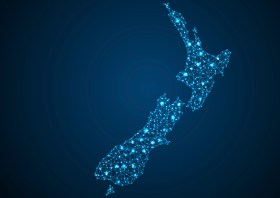
GIScience 2025, the 13th International Conference on Geographic Information Science, will be hosted by the University of Canterbury in collaboration with the GIScience academic research community across New Zealand.
The GIScience conference regularly attracts more than 250 international participants from academia, industry and government to discuss and advance the state-of-the-art in geographic information science.
The first day of the 2025 conference will be dedicated to workshops and tutorials, while the main conference program will run on the second and third days; it will include a single refereed paper track and an abstract track for posters and demo submissions.
GIScience 2025 welcomes papers, posters and demos covering emerging topics and fundamental research findings across all sectors of geographic information science, including (but not limited to) the role of geographic information in geography, computer science, engineering, information science, linguistics, mathematics, cognitive science, philosophy, psychology, social science and geostatistics.
Deadlines:
- Proceedings papers: 31 January 2025
- Workshop proposals: 14 February 2025
- Abstracts: 4 April 2025
- Demos: 4 April 2025
Image credit: ©stock.adobe.com/au/StudioProX

The Survey and Spatial New Zealand Annual Conference is the premier CPD event of the year for surveying and spatial professionals, offering an invaluable opportunity for knowledge-sharing, networking and professional development, connecting delegates with the latest trends and innovations in the sector.
This year’s theme of ‘Transforming the Landscape’ will bring a focus on innovation, forward-thinking and the evolving landscape of the profession, with an emphasis on technology and the future of the sector.
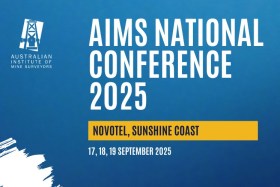
After the success of the Australian Institute of Mine Surveyors (AIMS) 2024 National Conference in Perth, 2025 will see the even return to the east coast for the 2025 AIMS National Conference at the Novotel Sunshine Coast Resort.
The Perth conference set new attendance records, and AIMS says it anticipates an even larger gathering in 2025. AIMS members, non-members and industry suppliers are welcome to attend the event.
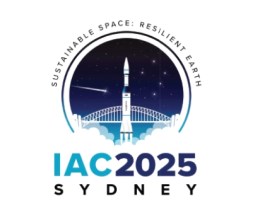
The 76th International Astronautical Congress (IAC), the International Astronautical Federation (IAF)’s premier global space event, will be held in Sydney, Australia from 29 September to 3 October 2025.
Often described as the ‘Olympics of space,’ this prestigious event is where the world’s space community gathers to access the latest space advancements and trends, academic works, industry connections, and partnership opportunities.
The theme for 2025 will be ‘Sustainable Space: Resilient Earth,’ setting the stage for important discussions such as: space-based applications for Earth, sustainable space activities, and sustaining life off Earth.


